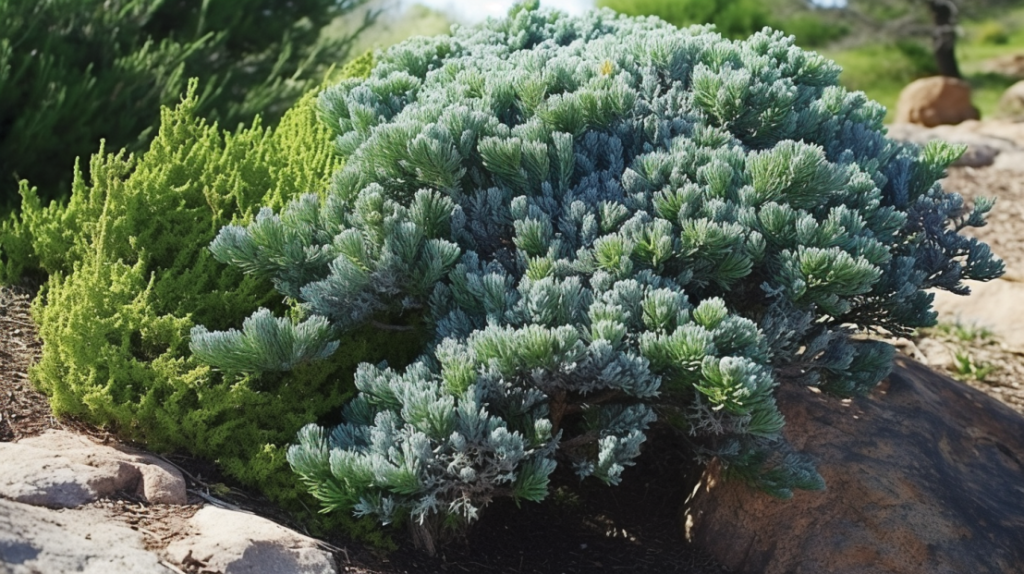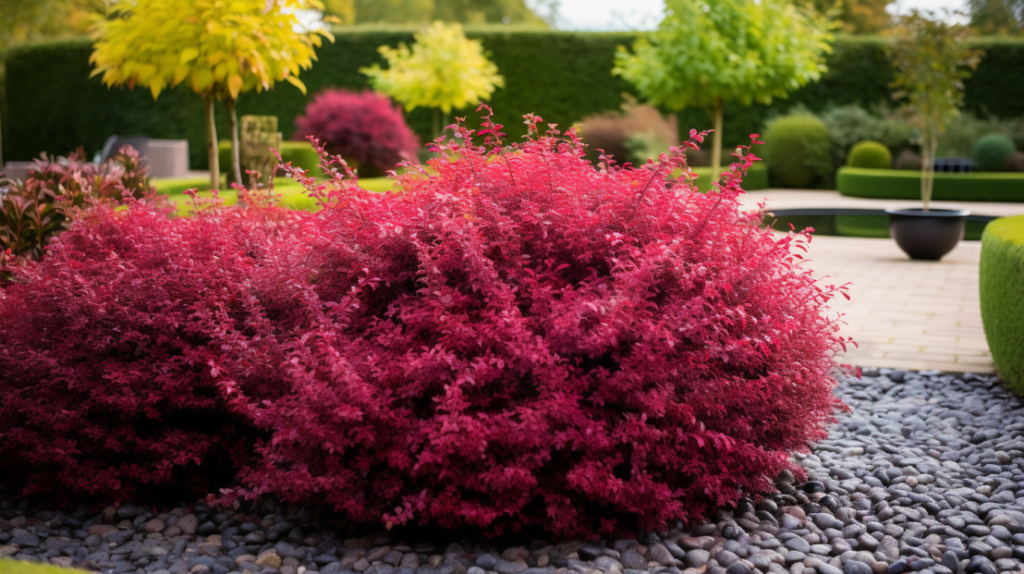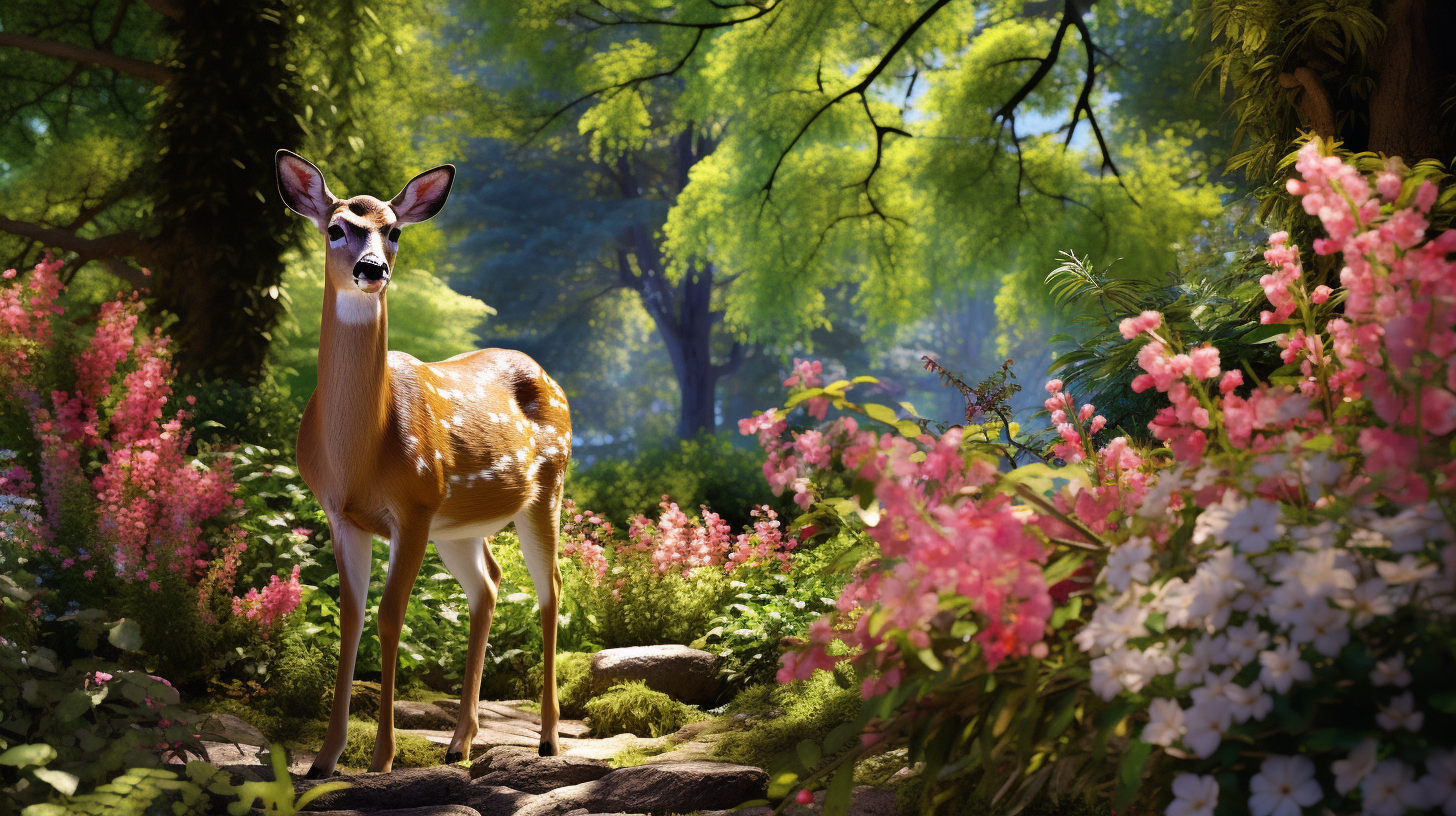Did you know that with the right selection of deer resistant shrubs, you can create a stunning garden while keeping pesky deer at bay? Deer can wreak havoc on your plants, but by choosing shrubs that they find unappealing, you can maintain a beautiful landscape without constantly battling with these grazing creatures. In this article, we will explore the world of deer resistant shrubs and provide you with valuable insights and tips to create a garden that is both visually pleasing and resistant to deer browsing.
Key Takeaways
Here are the key takeaways from this article:
| Key Points |
|---|
| – Deer resistant shrubs are essential for areas with high deer populations. |
| – Consider native plants that are well-suited to your region. |
| – Look for shrubs with strong scents or textures that deter deer. |
| – Popular deer resistant shrubs include Juniper, Boxwood, Russian Sage, Barberry, and Yucca. |
| – Protect your shrubs with physical barriers, repellents, and companion planting. |
Understanding the Behavior of Deer
Deer are notorious for their voracious appetites, often causing damage to gardens and landscapes. Understanding their feeding habits is crucial in selecting the right shrubs. Deer are particularly attracted to plants with soft foliage and high moisture content. They are also drawn to tender shoots, flowers, and buds. However, deer resistant shrubs have qualities that make them less appealing to these hungry herbivores.
To combat their feeding habits, it is important to choose plants that deer tend to avoid. Luckily, there are various options available that possess characteristics that deter deer from indulging in your garden oasis. These shrubs typically have strong scents, rough textures, or toxic compounds that make them unappetizing to deer. By incorporating these types of shrubs into your landscape, you can create a garden that is both aesthetically pleasing and resistant to deer damage.
Factors to Consider When Choosing Deer Resistant Shrubs
When selecting deer resistant shrubs for your garden, there are several factors to consider. Firstly, opt for shrubs that are native to your region. Native plants are well-adapted to the local climate and have natural defenses that help them resist damage from deer. Additionally, they provide important habitat for native wildlife and contribute to the overall biodiversity of your garden.
Another factor to consider is the scent or texture of the shrubs. Deer have a heightened sense of smell, so selecting plants with strong aromas can help deter them. For example, the evergreen Juniper emits a distinct scent that deer find repulsive, making it an excellent choice for deer resistant landscaping. Textures also play a role in deterring deer, as they prefer to feed on soft and succulent foliage. By choosing shrubs with rough or prickly leaves, such as Barberry, you can discourage deer from approaching your plants.
Lastly, it’s important to research the specific deer resistant varieties that thrive in your climate. Different regions may have different challenges and considerations. By choosing plants that are well-suited to your local conditions, you can increase their chances of success in repelling deer.
Popular Deer Resistant Shrubs
Here are some popular deer resistant shrubs that can add beauty and resilience to your garden:

Juniper (Juniperus spp.)
- Juniper shrubs are known for their enchanting evergreen foliage and striking presence in the landscape.
- The strong scent of Juniper is unappealing to deer, making them an excellent choice for deer resistant gardens.
Boxwood (Buxus spp.)
- Boxwood shrubs are renowned for their versatility and use in formal gardens.
- The dense foliage of Boxwood makes it unattractive to grazing deer, providing natural protection for your plants.
Russian Sage (Perovskia atriplicifolia)
- Russian Sage is a beautiful flowering shrub with aromatic silver-gray foliage.
- The strong scent emitted by Russian Sage deters deer from indulging in its delicate leaves.

Barberry (Berberis spp.)
- Barberry shrubs come in various colors, shapes, and sizes, adding interest to any garden.
- The thorny nature of Barberry leaves makes it unappealing to deer, keeping them away from your prized plants.
Yucca (Yucca spp.)
- Yucca shrubs feature dramatic spiky leaves and tall flowering stalks.
- The sturdy and fibrous leaves of Yucca plants make them less palatable to deer.
Tips for Protecting Deer Resistant Shrubs
Now that you have chosen the perfect deer resistant shrubs for your garden, it’s important to take steps to protect them from persistent deer. Here are some tips and strategies to ensure the longevity and beauty of your shrubs:
1. Physical Barriers
Physical barriers such as fences or netting can be effective in keeping deer away from your shrubs. Install a sturdy fence around your garden to create a barrier that deer cannot easily penetrate. Opt for a fence with a height of at least 8 feet to prevent deer from jumping over it. Additionally, consider adding netting around individual shrubs to provide added protection. This method creates a physical deterrent that makes it difficult for deer to access your plants.
2. Repellents
Deer repellents can be an effective tool in safeguarding your shrubs. These repellents work by emitting strong odors that deter deer from approaching your plants. There are two types of repellents: contact and area repellents. Contact repellents are applied directly to the plants, while area repellents create a scent barrier around the garden. Use repellents that are specifically formulated for deer and follow the instructions carefully to achieve the best results. Apply them regularly, especially after rainfall, to ensure continuous protection.
3. Companion Planting
Companion planting involves strategically placing plants that deer find unappealing near your shrubs. By interspersing your deer resistant shrubs with other plants that deer dislike, you can create a garden that is off-putting to these creatures. Some plants that are known to deter deer include lavender, rosemary, and daffodils. These plants either have strong scents or textures that deer find unpleasant. Consider planting daffodils near your shrubs as they are a natural deer repellent and add a pop of color to your garden.
4. Garden Design
The layout and design of your garden can also deter deer from entering or browsing on your shrubs. Create a garden layout that includes winding paths and raised beds. Deer prefer open spaces where they feel exposed, so by adding curves and using vertical elements, you can create a garden that feels less inviting to them. Additionally, consider incorporating plants with thorny or prickly characteristics into your design. This can act as a natural deterrent, making it less desirable for deer to approach your shrubs.
5. Maintaining a Healthy Garden
Ensuring that your garden is healthy and well-maintained is essential in deterring deer. Keep your shrubs properly pruned and maintained, as healthy plants are less likely to be targeted by deer. Remove any dead or damaged branches regularly to maintain the health and vigor of your shrubs. Providing adequate water and nutrients will also contribute to the overall resilience of your garden.
Remember, while these strategies can help reduce deer browsing, no method is foolproof. It’s important to combine multiple techniques to maximize your success in safeguarding your deer resistant shrubs.
Conclusion
By incorporating deer resistant shrubs into your garden and implementing effective protection strategies, you can create a visually stunning landscape that is resistant to deer damage. Consider the unique qualities of each shrub, such as the strong scents of Juniper and Russian Sage or the thorny leaves of Barberry. Choose native varieties that are well-suited to your region, and utilize physical barriers, repellents, companion planting, and thoughtful garden design to keep deer at bay. With careful planning and maintenance, you can achieve a beautiful and deer-proof garden for you to enjoy.
Hey there, fellow nature enthusiasts! I’m Mark Gray, the passionate owner of OutdoorAnimals.com, a hub dedicated to uncovering the incredible world of outdoor animals. Whether you’re a hiker, a four-wheeler, or just someone who revels in the beauty of the great outdoors, you’re in the right place. I seek to understand all varieties of animals, from the great elk to the simple mouse, my goal is to write and share this knowledge with the public.

